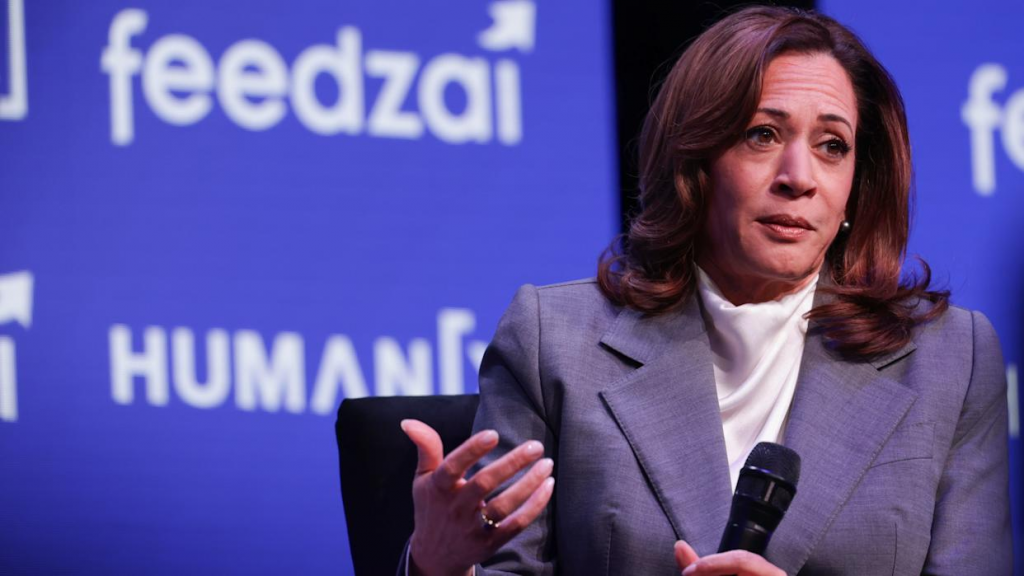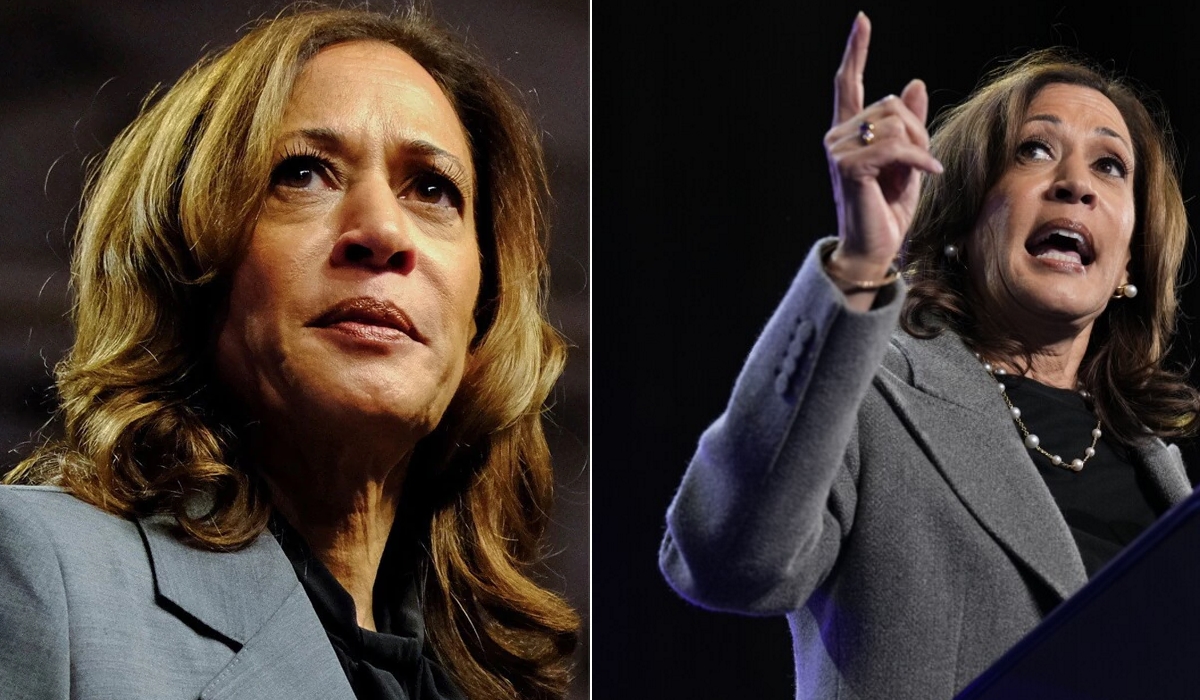Vice President Kamala Harris made headlines after delivering a direct and unapologetic message in support of the recent nationwide protests aimed at pushing back against policies enacted under Donald Trump’s administration. Her statement wasn’t just political commentary — it was a deeply personal appeal to those who believe in protecting public programs and democratic values.
Across all 50 states, the “Hands Off!” protests drew massive crowds. From New York to Los Angeles, from quiet towns to the heart of Washington, D.C., Americans poured into the streets. Their collective message was clear: protect the institutions that matter to everyday people — not just the elite few with money and influence.

Harris thanked the protestors with words that felt as much like a rallying cry as a gesture of gratitude. She acknowledged their efforts to defend programs like Social Security, Medicare, and the Department of Education. These aren’t abstract policies to her audience — they are lifelines, foundational to how millions live, learn, and survive.
She emphasized that the power of the people still holds weight. “The voices of working people will always be louder than the unelected billionaires,” she declared, a line that resonated far beyond political circles. It wasn’t just a jab at wealth—it was a statement about democracy itself, about who gets to decide and whose interests are being served.
The unease surrounding the growing influence of billionaires in government isn’t new, but it’s louder now than ever. The appointment of Elon Musk to a newly formed agency — the Department of Government Efficiency — sent shockwaves through the public. Though some hailed his tech-savvy approach, others saw it as a dangerous step toward privatization and control by the ultra-wealthy.

Under Musk’s guidance, reports emerged of sweeping cuts, including mass layoffs across various federal departments and proposals to dismantle long-standing public institutions. The Department of Education became an early target, prompting outrage among educators, families, and civil rights groups alike. What had once been political speculation suddenly felt very real.
The “Hands Off!” movement was born from this urgency. Organized by a broad coalition of civil rights advocates, union leaders, and grassroots organizers, it quickly became a nationwide show of resistance. People from every walk of life — teachers, nurses, students, retirees — stood shoulder to shoulder in defense of programs they believe are under siege.
Their concerns extended beyond policy changes. There was a deeper fear that government was slowly becoming a playground for the unelected — for individuals with immense wealth but no direct accountability to the public. It wasn’t just about budgets or bureaucracies. It was about preserving the soul of a nation rooted in representation, fairness, and shared responsibility.
Harris’s comments touched a nerve not because they were surprising, but because they echoed a sentiment growing steadily across the country. For many Americans, the question isn’t whether billionaires should be involved in shaping policy — it’s whether they’re replacing the voices of the people altogether.
The protests weren’t just symbolic. They marked a turning point in public discourse. In city after city, protestors carried signs that read “Democracy Not Dictatorship” and “Hands Off Our Rights,” voicing fears that the balance of power is shifting too far toward those who already hold most of it.

Kamala Harris’s vocal support brought legitimacy to that concern. It told protestors they were seen. That their worries weren’t radical, but rooted in a real and growing imbalance. Her message reminded citizens that their participation matters, even when it feels like billion-dollar influence speaks louder.
What this moment revealed is that political movements aren’t driven by institutions alone. They are fueled by stories, by voices, by the everyday decisions people make to show up and speak out. In acknowledging that, Harris wasn’t just endorsing a protest — she was recognizing a movement that may define a critical chapter in American democracy.
As the political landscape continues to shift, one thing is clear: the divide between elected leadership and concentrated wealth is under a magnifying glass. And voices like Harris’s — along with those marching in the streets — are making it harder for that gap to be ignored.
